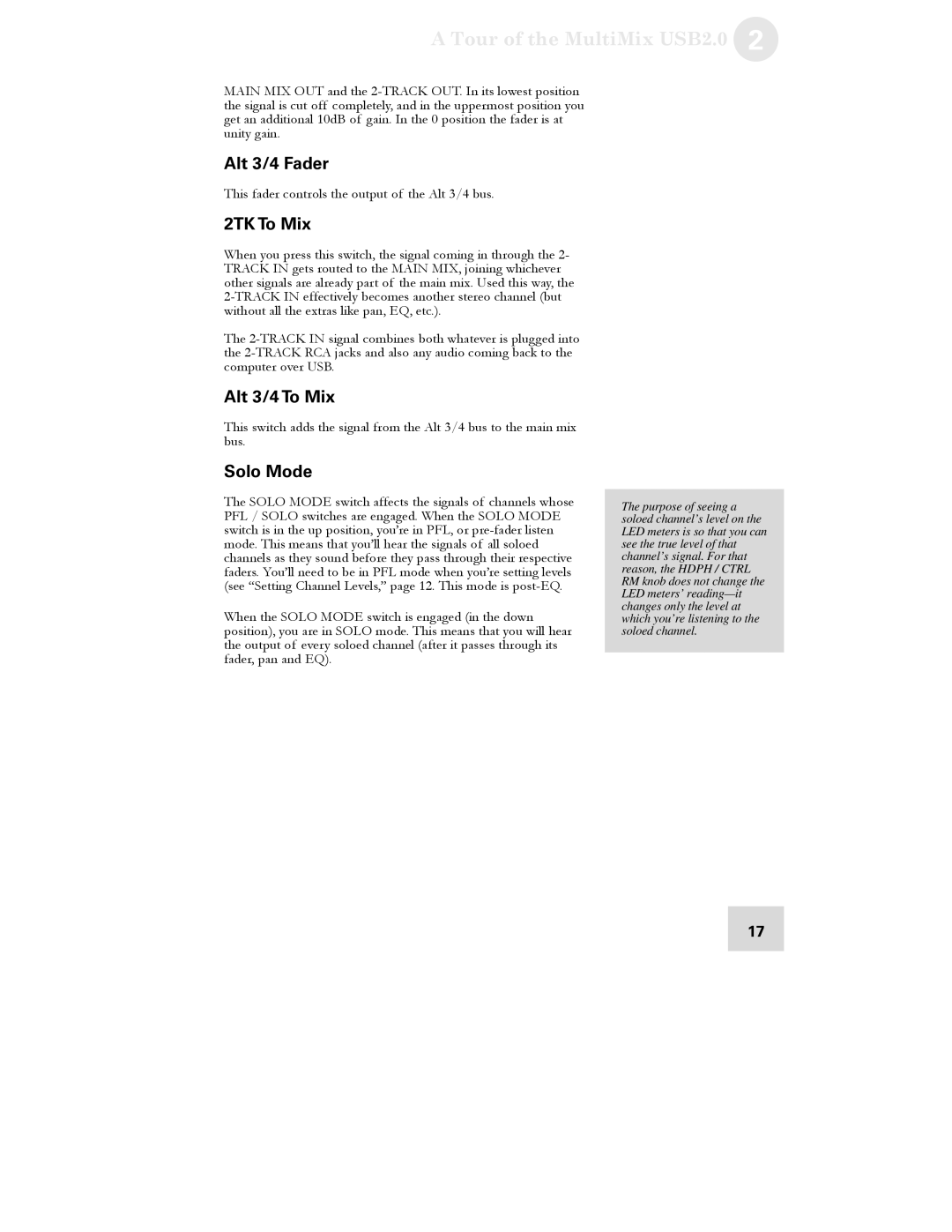
A Tour of the MultiMix USB2.0 2
MAIN MIX OUT and the
Alt 3/4 Fader
This fader controls the output of the Alt 3/4 bus.
2TK To Mix
When you press this switch, the signal coming in through the 2- TRACK IN gets routed to the MAIN MIX, joining whichever other signals are already part of the main mix. Used this way, the
The
Alt 3/4 To Mix
This switch adds the signal from the Alt 3/4 bus to the main mix bus.
Solo Mode
The SOLO MODE switch affects the signals of channels whose PFL / SOLO switches are engaged. When the SOLO MODE switch is in the up position, you’re in PFL, or
When the SOLO MODE switch is engaged (in the down position), you are in SOLO mode. This means that you will hear the output of every soloed channel (after it passes through its fader, pan and EQ).
The purpose of seeing a soloed channel’s level on the LED meters is so that you can see the true level of that channel’s signal. For that reason, the HDPH / CTRL RM knob does not change the LED meters’
17
